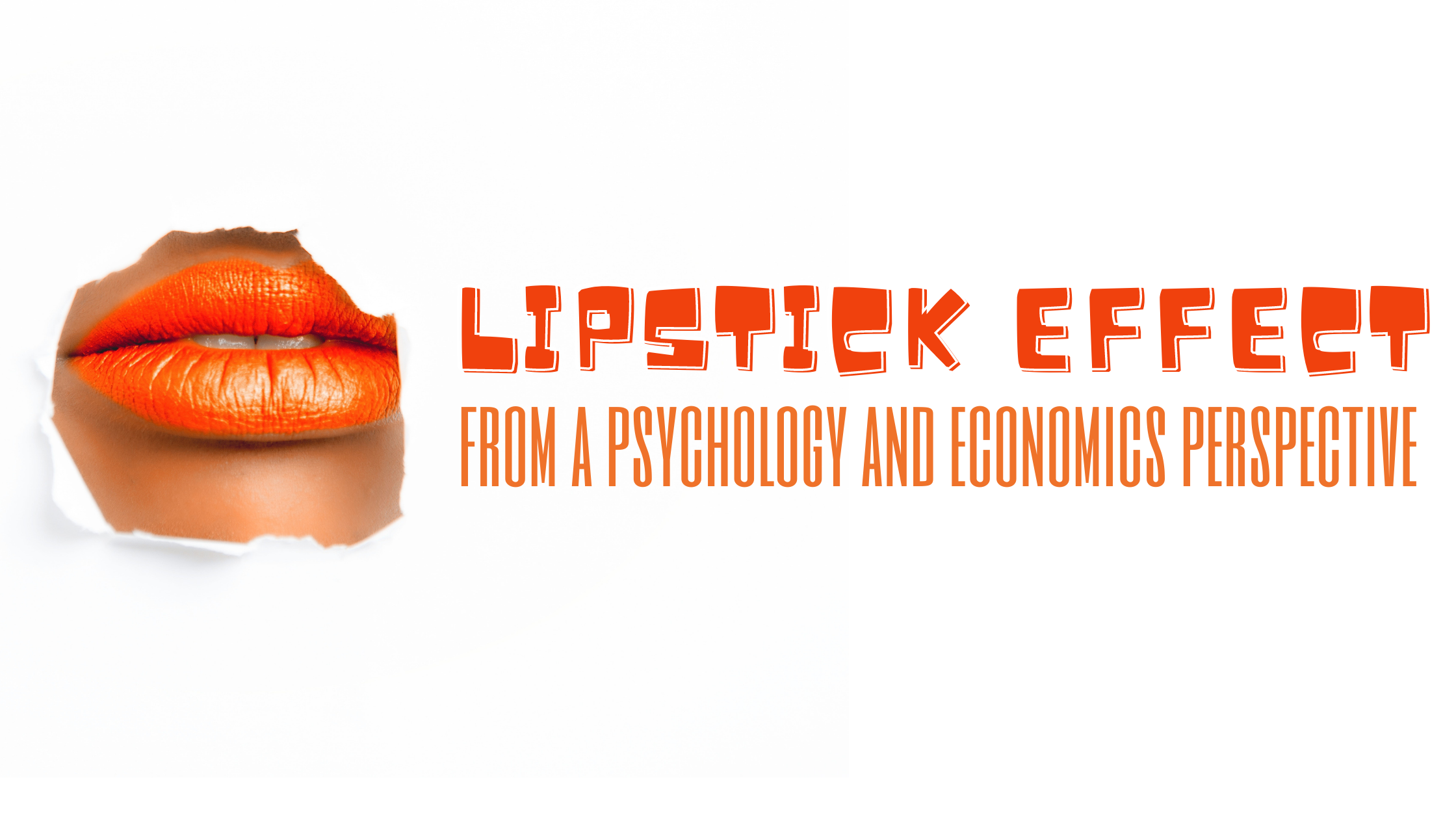Why The Lipstick Effect Forces Us To Rethink Spending

The lipstick effect defies what most people would come to expect during an economic downturn. The theory states that during a recession, the sales for lipstick nearly always increase. This has been shown in many cases, and it continues to perplex economists.
A few theories may explain the cause of this effect, but there is not a clear consensus to explain why. To help us understand the lipstick effect, we need to look at what psychologists and economists think about it and reconsider what a luxury item is.
The lipstick effect in a nutshell
Economists and psychologists alike have become aware of the phenomenon of the increase in lipstick sales during a recession. Lipstick sales increased after the terrorist attacks on 9/11 during the following economic downturn.
L’Oreal also experience a growth in sales during the 2008 crisis when nearly every industry was negatively affected. You would expect lipstick sales, a luxury item, to decrease when household budgets are shrinking.
Lipstick isn’t the only product that sees growth during uncertain times; it also applies to most cheaper luxury items. This includes alcohol, tobacco, candy, clothing, and many other luxuries.
The lipstick effect brings with it a lot of questions. What drives women to buy more lipstick when they have less to spend? Or, is there a psychological explanation for the theory?
Evolutionary psychology and the mate-seeking theory
Evolutionary psychology seeks to explain certain behaviors by looking at our past and the conditions that shaped early humans. The idea is that we still hold many of the same neurological wirings with early humans.
The mate-seeking theory seeks to explain the phenomenon by saying that women have an unconscious drive to seek a mate with more resources upon learning of an economic downturn. People have always swung through times of prosperity and times of poverty. And this may have likely been a behavior that has become hardwired in our brains.
Of course, there are criticisms of the theory. Some claim that this is a far too complicated explanation of a very simple phenomenon. It could be that lipstick gives women a boost when they feel down or that it’s just a form of a less expensive luxury.
The lipstick phenomenon is only seen in smaller luxury goods, not the more expensive ones like fur coats and new cars. Buying lipstick might just be a cheaper way to pamper yourself. However, the mate-seeking theory might still be correct.
The economist’s perspective
There is a group of economists that claim there isn’t enough evidence to justify the lipstick theory. At best, it is just exaggerated.
It is very difficult to track lipstick sales and the cases that do show an increase in lipstick sales during a recession are considered anecdotal. Those pushing back against the theory do concede that there is at least some truth to it.
The economists that recognize the effect typically don’t side with the mate-seeking theory. Instead, they suggest that it’s just luxury sized down to fit the negative economic circumstances. The mate-seeking theory might hold stronger if women continued to buy lipstick up until they were literally starving.
One function of spending can simply be to alleviate stress. Putting on lipstick can easily make someone feel better.
Is lipstick a necessary luxury?
What is a luxury? Most people would say it’s a comfort item we don’t need. But if you stop and think about it, there are a lot of comfort items we don’t need but wouldn’t do away with even during the most trying economic times.
For example, most of us enjoy the luxury of a smartphone or computer, but it would take extreme circumstances for people to stop paying for internet services. For many women, lipstick is both a comfort and a necessity.
But lipstick sales don’t just continue during a recession; they grow. This means that something about the circumstances of uncertain financial times drives women to buy more lipstick and people at large to purchase small luxury goods.
Assuming that luxury is a comfort item, it makes sense why people would seek more comfort in times of distress. Whatever you believe causes the lipstick effect, it forces us to rethink how and why we make purchases.

Recent Comments